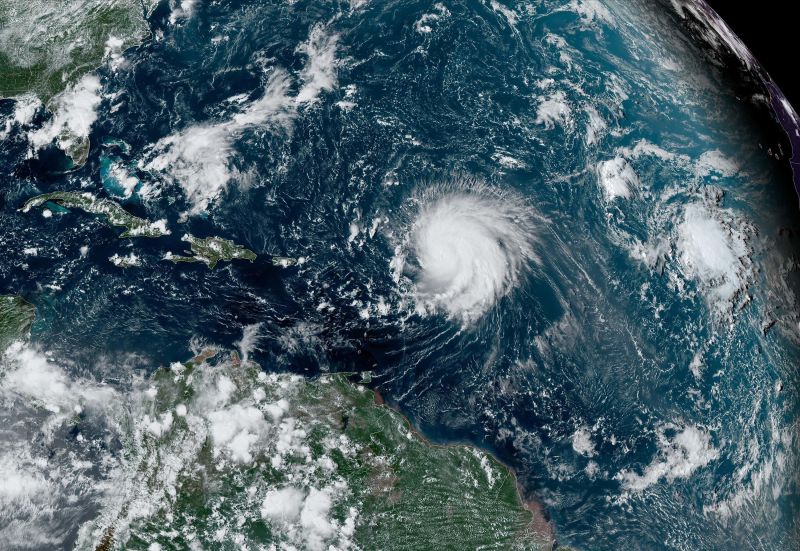March 21, 2024
Riding the Wave: Global Ocean Heat Sets Daily Record for an Entire Year
 Global Ocean Heat Has Hit a New Record Every Single Day for the Last Year
The Earth’s oceans are vast and dynamic bodies of water that cover over 70% of the planet's surface. In recent years, scientists have been closely monitoring the temperature of these oceans and have observed a concerning trend: global ocean heat has hit a new record every single day for the last year. This unprecedented increase in ocean temperatures has far-reaching implications for marine life, weather patterns, and overall climate stability.
The oceans play a crucial role in regulating the Earth's climate by absorbing and distributing heat around the globe. However, the rapid rise in ocean temperatures over the past year has raised alarms among scientists and environmentalists. The increased heat content of the oceans can have devastating effects on marine ecosystems, leading to coral bleaching, disruption of food chains, and loss of biodiversity.
The warming of the oceans is also a significant driver of extreme weather events such as hurricanes, typhoons, and heatwaves. Warmer oceans provide more energy to fuel these storms, leading to increased intensity and frequency of extreme weather events. This can have devastating consequences for coastal communities, causing widespread damage and loss of life.
Furthermore, the rising ocean temperatures can have a cascading impact on global climate patterns. Warmer oceans can disrupt ocean currents and atmospheric circulation, leading to changes in weather patterns and precipitation levels around the world. This can have profound effects on agriculture, water resources, and overall climate stability.
The root cause of the unprecedented rise in ocean temperatures is the accumulation of greenhouse gases in the atmosphere, primarily due to human activities such as burning fossil fuels and deforestation. These gases trap heat in the Earth's atmosphere, leading to a warming effect known as global warming. As the Earth warms, the oceans absorb much of this excess heat, driving up ocean temperatures and contributing to the overall climate crisis.
Addressing the issue of rising ocean temperatures requires urgent and coordinated action on a global scale. It is imperative that countries work together to reduce greenhouse gas emissions, transition to clean and renewable energy sources, and protect and restore marine ecosystems. By taking decisive action now, we can help mitigate the impacts of ocean heat on marine life, weather patterns, and global climate stability.
In conclusion, the unprecedented rise in global ocean heat over the past year is a concerning trend that underscores the urgent need to address the root causes of climate change. By working together to reduce greenhouse gas emissions and protect our oceans, we can help preserve marine ecosystems, mitigate the impacts of extreme weather events, and safeguard our planet for future generations.
Global Ocean Heat Has Hit a New Record Every Single Day for the Last Year
The Earth’s oceans are vast and dynamic bodies of water that cover over 70% of the planet's surface. In recent years, scientists have been closely monitoring the temperature of these oceans and have observed a concerning trend: global ocean heat has hit a new record every single day for the last year. This unprecedented increase in ocean temperatures has far-reaching implications for marine life, weather patterns, and overall climate stability.
The oceans play a crucial role in regulating the Earth's climate by absorbing and distributing heat around the globe. However, the rapid rise in ocean temperatures over the past year has raised alarms among scientists and environmentalists. The increased heat content of the oceans can have devastating effects on marine ecosystems, leading to coral bleaching, disruption of food chains, and loss of biodiversity.
The warming of the oceans is also a significant driver of extreme weather events such as hurricanes, typhoons, and heatwaves. Warmer oceans provide more energy to fuel these storms, leading to increased intensity and frequency of extreme weather events. This can have devastating consequences for coastal communities, causing widespread damage and loss of life.
Furthermore, the rising ocean temperatures can have a cascading impact on global climate patterns. Warmer oceans can disrupt ocean currents and atmospheric circulation, leading to changes in weather patterns and precipitation levels around the world. This can have profound effects on agriculture, water resources, and overall climate stability.
The root cause of the unprecedented rise in ocean temperatures is the accumulation of greenhouse gases in the atmosphere, primarily due to human activities such as burning fossil fuels and deforestation. These gases trap heat in the Earth's atmosphere, leading to a warming effect known as global warming. As the Earth warms, the oceans absorb much of this excess heat, driving up ocean temperatures and contributing to the overall climate crisis.
Addressing the issue of rising ocean temperatures requires urgent and coordinated action on a global scale. It is imperative that countries work together to reduce greenhouse gas emissions, transition to clean and renewable energy sources, and protect and restore marine ecosystems. By taking decisive action now, we can help mitigate the impacts of ocean heat on marine life, weather patterns, and global climate stability.
In conclusion, the unprecedented rise in global ocean heat over the past year is a concerning trend that underscores the urgent need to address the root causes of climate change. By working together to reduce greenhouse gas emissions and protect our oceans, we can help preserve marine ecosystems, mitigate the impacts of extreme weather events, and safeguard our planet for future generations.
If you would like to delve into the world of investment topics , go to our partner project Wall Street Wizardry


